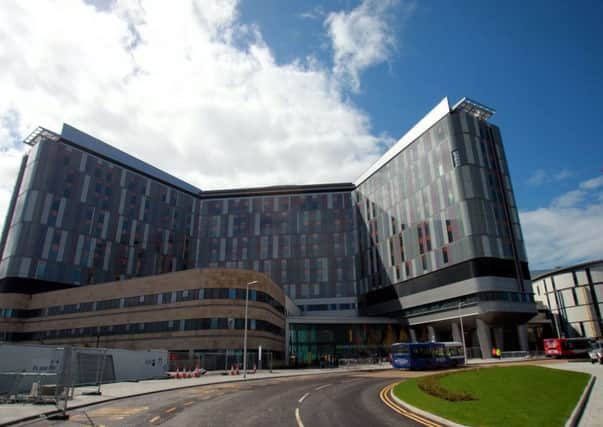Review into patient death at Glasgow super hospital


A newspaper reported that an elderly man died on a trolley at the flagship Queen Elizabeth University Hospital in Glasgow after waiting eight hours for treatment earlier this week.
It is understood he died of a cardiac arrest while on a trolley in the corridor on Tuesday, following a busy Monday night, the newspaper said.
Advertisement
Hide AdAdvertisement
Hide AdNHS Greater Glasgow and Clyde said a full review of the patient’s treatment is being carried out and that the wait was one of six hours.
The health board said the unit was fully staffed but under extra pressure at the time due to a higher than average number of patients who attended.
A spokesman said: “The patient who sadly passed away in the early hours of Tuesday morning after a six-hour wait had an initial assessment by a member of nursing staff on arrival at the immediate assessment unit (IAU) at the hospital.
“Our thoughts and sympathies are with the patient’s family at this difficult time.
“A senior member of our clinical management team has been in direct contact with the family to confirm that a full review of the patient’s treatment is being carried out and that the outcome will be shared with them when concluded.”
The spokesman added: “The unit was fully staffed but was put under extra pressure as a result of a higher than average number of patients attending the department and patients waiting longer than usual to be admitted.
“Our staff worked extremely hard to ensure patients attending the hospital were assessed, investigated, diagnosed, treated and admitted to a bed or discharged as quickly as possible, and we apologise to those patients who had a long wait.”